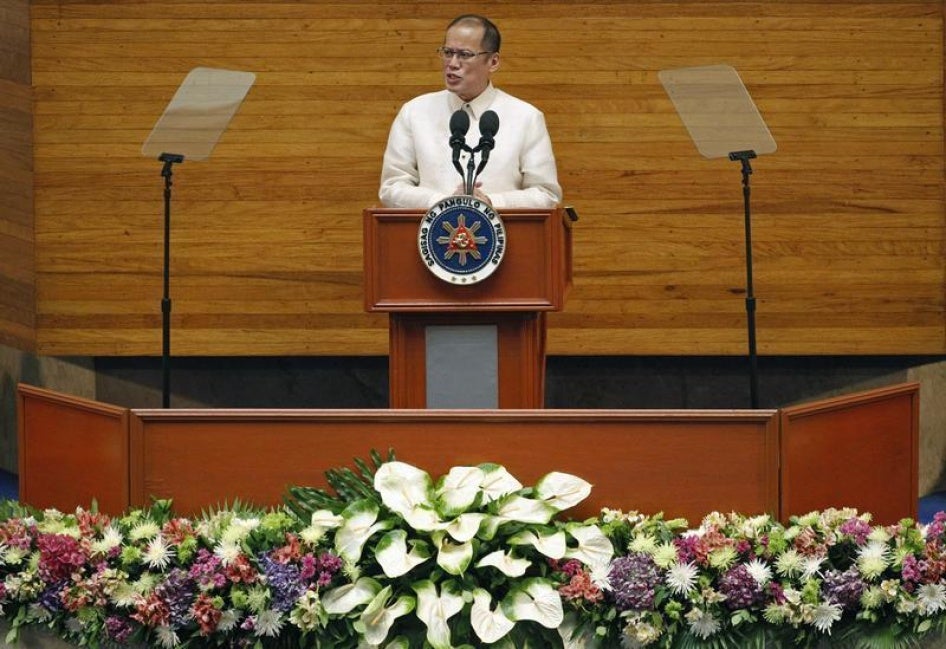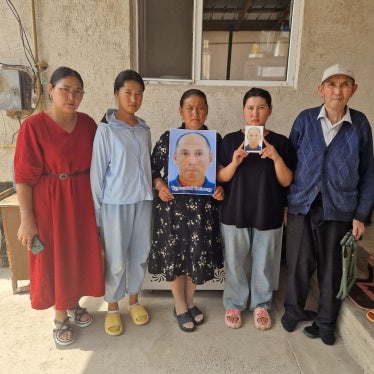(Manila) – Philippine President Benigno Aquino III should commit his administration to meaningful human rights reforms in his final State of the Nation Address on July 27, 2015, Human Rights Watch said today. Aquino’s address may be his last major public policy speech before his term ends after the next presidential election in May 2016. Under the Philippine constitution, presidents serve a single six-year term.
Aquino won the 2010 election on a political platform that included explicit human rights commitments, including a promise to tackle the lack of accountability of the military and police. However, his five years as president have been marked more by rhetoric than concrete action to address serious human rights violations in the Philippines such as extrajudicial killings, torture, and enforced disappearances.
- Direct the Philippine National Police and Task Force Usig to improve its investigation and documentation of cases of alleged extrajudicial killings, and submit a regular – preferably monthly – progress report on the status of these cases;
- Direct the interagency body (the so-called superbody) created by Administration Order 35 and led by the Justice Department to expedite the inventory of the “priority cases” begun in 2012 and to make public the status of these cases, and require the “superbody” to provide monthly updates on the status of these priority cases and the reasons for any delay in initiating prosecutions;
- Publicly disavow “death squads” in urban areas as a legitimate crime-control strategy and investigate and appropriately prosecute any government official involved in extrajudicial killings;
- Issue a public order to all security forces rejecting the threat or use of force against political activists, unionists, and members of civil society groups for expressing their political views. In addition, reiterate to all forces the Internal Peace and Security Plan (IPSP) Bayanihan’s emphasis on international human rights and humanitarian law as one of its two “strategic imperatives”; and
- Rescind executive order 546 signed in 2006 that allows local politicians to effectively form their own militias or private armies, such as that implicated in the Maguindanao Massacre in 2009.
“President Aquino’s record on human rights is five years of squandered opportunity,” Kine said. “Aquino should use his State of the Nation Address to demonstrate that that he will use his last year in office to focus on ending human rights abuses rather than turning a blind eye to them.”









